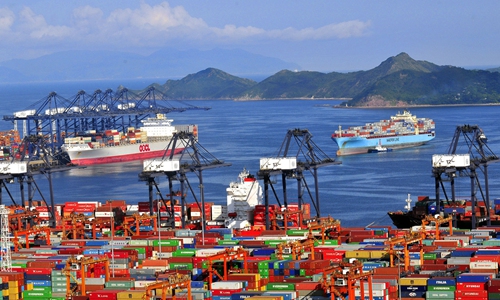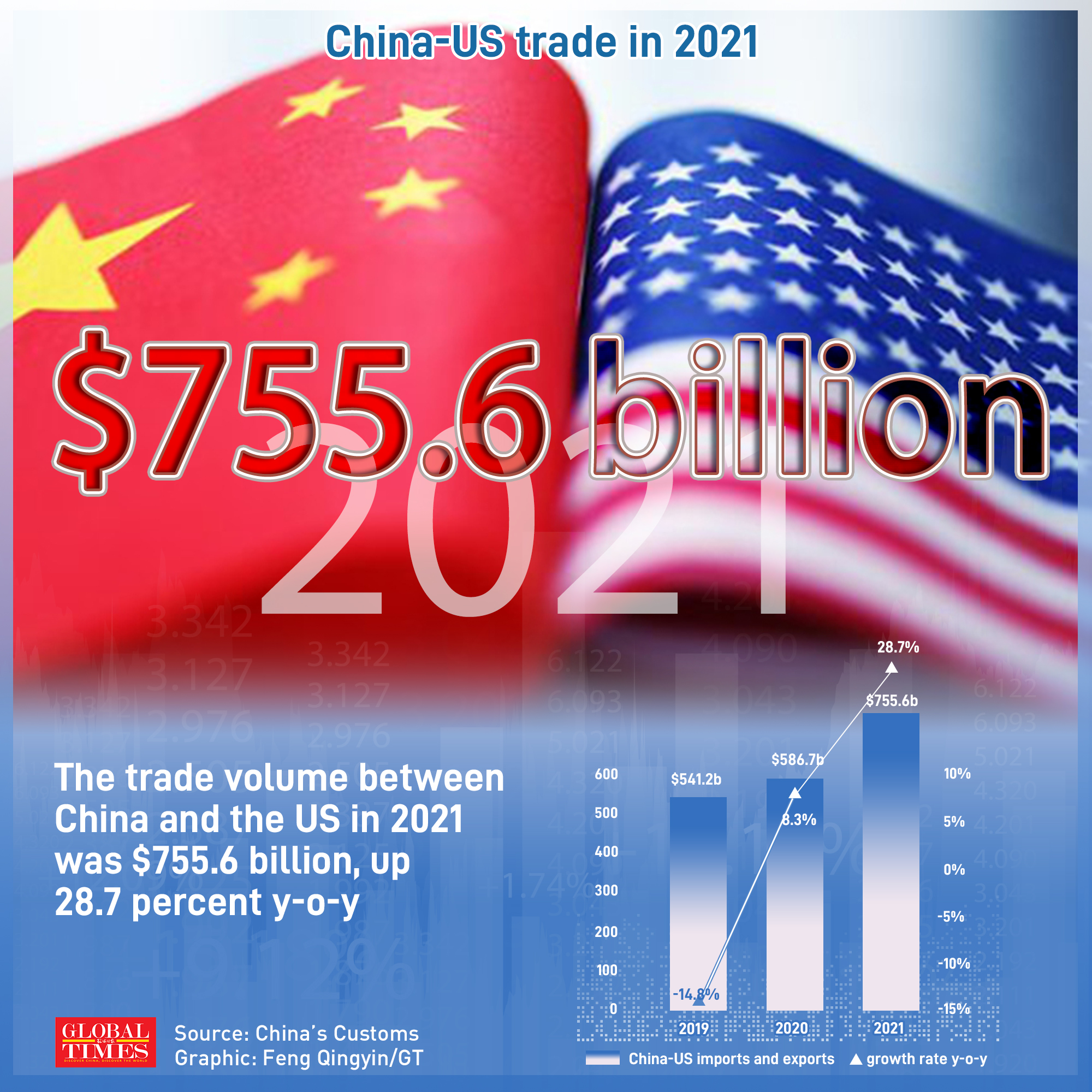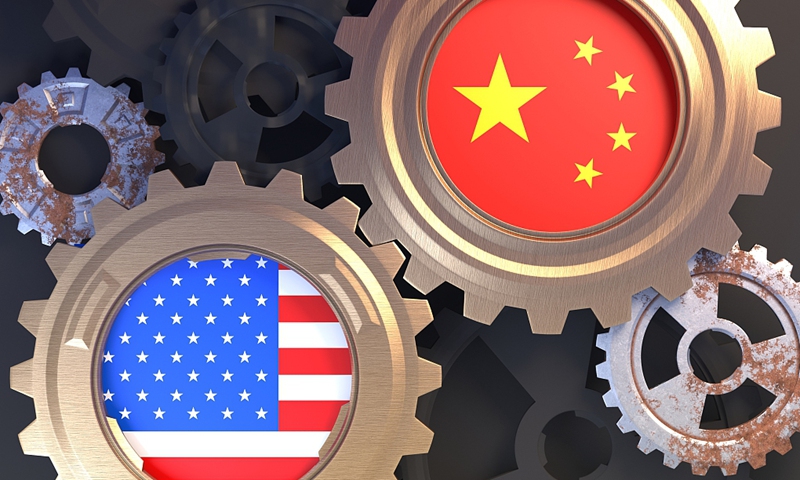US urged to scrap all China tariffs after exemptions on 352 Chinese imports reinstated
Reinstating 352 product exclusions too small: experts

China-US trade
China on Thursday urged the US to remove all additional tariffs on Chinese products as soon as possible, after the Biden administration announced plans to restore waivers for 352 Chinese imports - a very small number of items among a large pool of tariff-hit Chinese products.
The US will reinstate exemptions on 352 out of 549 categories of Chinese imports from the so-called Section 301 tariffs after previously granted exemptions expired, the Office of the US Trade Representative (USTR) said on Wednesday.
The reinstated exemptions will apply retroactively to October 12, 2021 and extend through December 31, 2022, according to the USTR.
Exempted items include industrial components such as pumps and electric motors, certain car parts and chemicals, backpacks, bicycles, vacuum cleaners and other consumer goods.
"This facilitates normal trade in related products. China has always believed that the unilateral US tariff increase is not good for China, the US or the world," Chinese Ministry of Commerce spokesperson Shu Jueting told a press conference on Thursday.
It's hoped that the US will remove all additional tariffs on Chinese products as soon as possible and push for bilateral economic and trade relations to get back to normal, Shu said.
Also commenting on the waiver, Chinese Foreign Ministry spokesperson Wang Wenbin told a press conference on Thursday that the essence of China-US economic and trade relations is mutual benefit and win-win results, and there is no winner in a trade war.
Observers said the tariff exemptions could be mutually beneficial for both the Chinese and US business communities, while noting the exemption scale this time is too small, and calling on Washington to do more if it wants to make solid progress.
"It's actually a very small technical progress, and the 352 items only account for a quite small proportion of all the Chinese imports that have faced punitive tariffs," He Weiwen, a former senior trade official and an executive council member of the China Society for World Trade Organization Studies, told the Global Times on Thursday.
There's no need to over-interpret the move as a "goodwill gesture" from Washington, He said.
The world's two largest economies have been locked in a trade war since 2018. On March 22, 2018, former US President Donald Trump signed a memorandum based on "Section 301," deciding to impose large-scale tariffs on goods imported from China, and restrict Chinese companies' investments and mergers and acquisitions in the US.
Trump initially granted more than 2,200 exclusions to the tariffs to provide relief to certain industries and retailers. Most were allowed to expire, but 549 were extended for a year, and expired at the end of 2020. US Trade Representative Katherine Tai last October launched a review of whether to reinstate those 549 exclusions
"The back-and-forth approach on US tariff exemptions for Chinese goods highlights the contradiction of the US - to restrain China but it cannot afford the cost," Bai Ming, deputy director of the International Market Research Institute at the Chinese Academy of International Trade and Economic Cooperation, told the Global Times on Thursday.
US businesses have also been complaining about the tariffs, saying they were hurting US companies and consumers and putting the US at a competitive disadvantage.
To curb a surge in inflation, US Federal Reserve officials are helping shape market expectations for sharper interest-rate hikes, but have not managed to dispel fears that the tightening cycle could blow a hole in the economy and labor market, according to a Reuters report on Tuesday.
Official data showed that trade between the world's two largest economies soared by 28.7 percent and amounted to $755.6 billion in 2021 - maintaining a strong growth momentum and contributing 12 percent to China's record $6 trillion foreign trade for the year, despite tariffs and bruising political tensions.
The robust growth in trade also provided clear evidence that the trade war launched by the US had not achieved its intended purpose, Bai said.

China's foreign trade in 2021. Graphic: Feng Qingyin/GT

